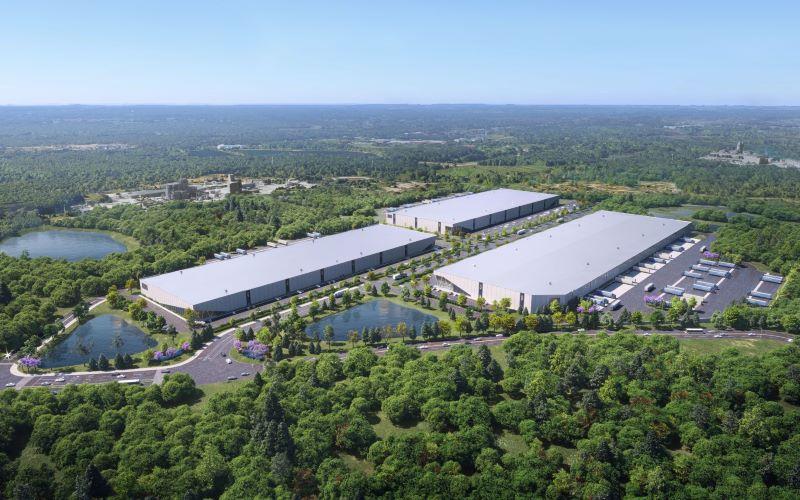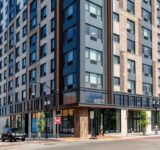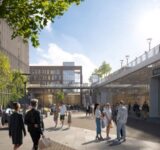Trammell Crow Co. and a fund managed by CBRE Investment Management have broken ground on a three-building, 1.08 million-square-foot industrial park known as Arsenal Trade Center, as depicted in this rendering, in a project that will redevelop part of a former chemical plant at 50 South Minisink Ave. in Sayreville. — Courtesy: TCC/CBRE
By Patricia Alex
A long-dormant and formerly contaminated site in Sayreville, once home to gunpowder and chemical plants, is finding new life under a development that will add more than a million square feet of modern industrial space to the market in Central Jersey.
The three-building Arsenal Trade Center also promises to bring new jobs and ratables to the Raritan Bay region. Experts say that, while players like Amazon are stepping back from warehouse and logistics expansion in the state, the market for such properties remains robust.

“Overall, the vacancy rate is still very healthy and there is still healthy demand,” said David Knee, an industrial broker and vice chairman with JLL. “E-commerce has slowed down, but the New Jersey marketplace is very diversified in terms of tenants and markets.”
Arsenal is a joint venture between Trammell Crow Co. and a fund managed by CBRE Investment Management. Located off South Minisink Avenue, the 74-acre site is about four miles east of the New Jersey Turnpike.
“Tenants recognize the central location that this market offers, providing access to more than 2 million people within a 30-minute drive and with it, some of the country’s most talented pools of labor,” Andrew Mele, managing director of TCC’s Northeast metro office, said in a press release. “The size, scale and high-quality design of Arsenal Trade Center are unique attributes in this market that we believe will be attractive to today’s modern logistics user.”
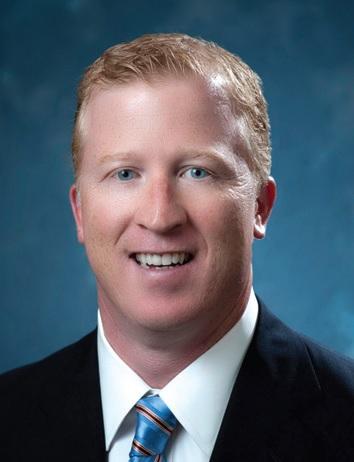
In an interview with Real Estate NJ, Mele said the project’s cost would be “north of $300 million.”
The developers hosted a ceremonial groundbreaking at the site in mid-September, but bulldozers and backhoes had already begun carving paths and creating mounds of the sandy soil. The buildings will each come online at different times, with the entire project slated for completion in late 2023.
Plans call for 170 rear loading docks spread among three buildings: one encompassing 284,341 square feet, another 341,833 square feet and the third 451,602 square feet. Additional parking is planned for tractor-trailers and other vehicles. Talks have already begun with potential tenants, the developers said.
The vacancy rate for the Exit 10 submarket is 1 percent and is even tighter for Class A space, with a rate of 0.7 percent, said Knee, who oversees JLL’s industrial practice in New Jersey, Pennsylvania and New York.
“The only challenge with that site is a little bit on the access, it’s not a direct on and off,” he said. “But there are more challenging markets that do very well. It’s a good location and the visibility is good. It’s just a little trickier location.”
Mele said there are just two stoplights after getting off the Turnpike from Route 9.
“Would I prefer that this project be sitting on the Turnpike interchange?” he said. “Yes, but those sites don’t exist in this scale or quality.”
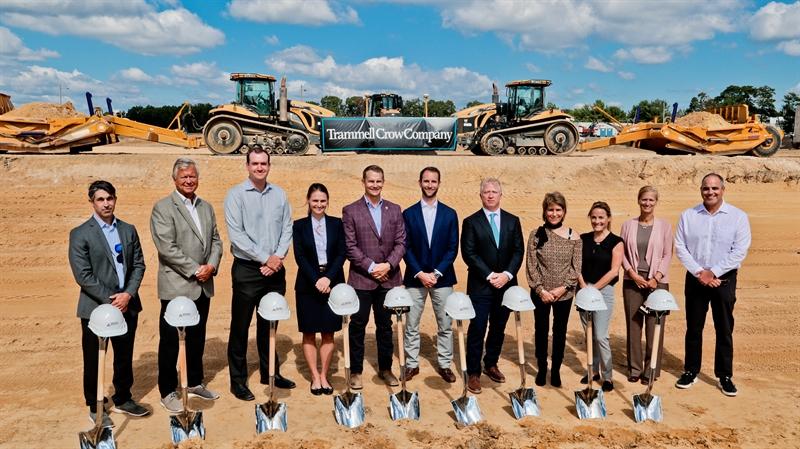
The Arsenal project is the culmination of nearly two decades of attempts to clean up and reuse the site, which was the home of the Hercules Inc. plant for nearly 100 years. Gunpowder was manufactured at the site and then chemicals, including the pesticide DDT.
Beginning with Hercules, years of soil and groundwater remediation at the plant was undertaken under the direction of the U.S. Environmental Protection Agency. Ashland Inc. acquired Hercules in 2008, shuttering the plant in 2014 and selling the development site — which is just a portion of the Hercules tract — to Arsenal’s developers this summer. By that time, the joint venture had conducted more than three years of due diligence in assessing the site and designing the project, Mele said.
Sayreville’s redevelopment agency has been also working for decades to attract new development for this and other large industrial tracts in the borough, which sits on the Raritan Bay.
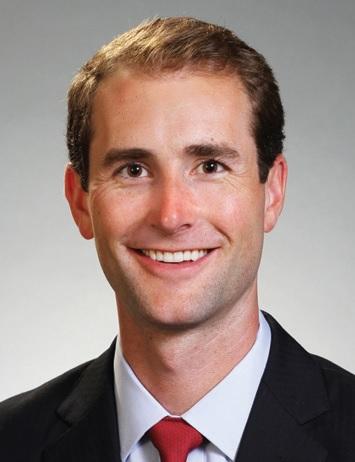
The new buildings are part of that cleanup in that they will serve as a “cap” for soil remediation, said John Pollock, senior vice president with TCC’s Philadelphia business unit. He said the project is designed for sustainability, as the goal is to achieve silver certification on the U.S. Green Building Council’s Leadership in Energy and Environmental Design scale.
“The Arsenal project is unique because it’s also part of a redevelopment plan that has been in the works for years,” Pollock said. “This is something that is one of the best examples of recycling land.”
KSS Architects is designing the trade center and RC Andersen is acting as the general contractor, while CBRE’s Thomas F. Monahan, Larry Schiffenhaus, Stephen D’Amato and Ben Shapiro are the project’s leasing team.
“It’s a vast amount of land in a densely populated area,” Pollock said. “The best use is to create ratables and jobs for the people of Sayreville, to bring jobs to the area.”
Sayreville Historian Frank Terzino worked as a lab technician at Hercules for 28 years and said he was saddened to see the chemical plant and many trees surrounding it destroyed. But he was hopeful that Arsenal would benefit the community. “Hopefully it will create jobs,” he said.
The developers have agreed to fund road and intersection improvements near the site in the Parlin neighborhood, which has a mix of industrial, commercial and residential properties. In addition to concerns about truck traffic, some residents have lamented the thousands of trees razed to prepare the site for building. The joint venture has given $1.7 million to Sayreville’s shade tree commission to plant trees throughout the borough.
Beyond that contribution, the developers are planting close to 1,000 trees at the Arsenal site, TCC spokeswoman Elise Maguire Ferrara said. At the groundbreaking, TCC also announced a $100,000 donation to nearby Middlesex College to aid those studying architecture, engineering, construction, supply chain or logistics.
Meantime, Mele said TCC, which has development projects around the country, will be looking to do more in New Jersey. The firm recently sold its interest in Innovation Park, a project it developed for high-tech and pharma tenants on nearly 90 acres in East Windsor.
“We’re always loading the pipeline with new opportunities,” he said. “Our long-term focus is to be doing projects in Northeast.”
Developers set to begin three-building, 1.1 million sq. ft. logistics park in Sayreville

